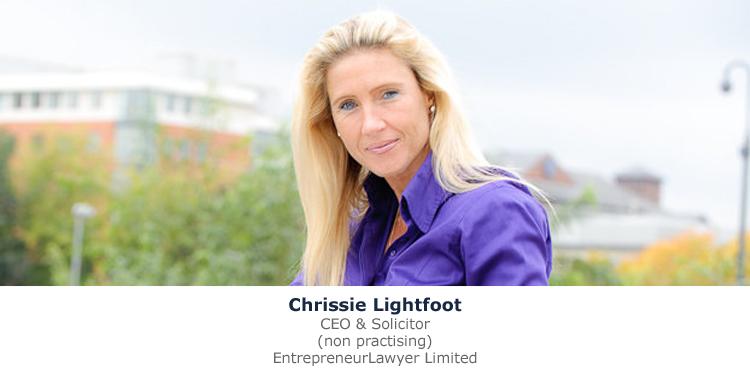***
In the new digital era, the individual and social perception of the lawyer will be changed and you discuss the main challenges in your book, ‘’Tomorrow’s Naked Lawyer’’. So, what is your main message to lawyers on how to reach their ‘’comfort zone’’?
We are all living through a technological renaissance. We’re on the cusp of a technological transformation in multiple professional services industries around the world. Our way of working and delivering services and products to existing and new clients is changing faster than we anticipate due to the burgeoning Age of AI fostering widespread automation of human tasks and roles. AI is already here (and has been for many years) and outperforming some professionals on various tasks. Our clients are aware of this.
Accordingly, client and prospective client expectations and behaviours are shifting; they expect to be served by both humans and machines and are comfortable with this. As lawyers, we therefore need to make the shift in embracing the best of our human skills together with the best of ‘machine skills’; we need to be comfortable to let go of the stuff where machines are superior and focus on doing the things they are not. It would be wise for human lawyers to become comfortable using a range of advanced smart machines with the variety of AI sub-sets to augment what they do, as the positive results of humans and machines working together benefit lawyers, law firms, lay people and businesses. It’s time to get on the AI train; it left the station years ago.
Where do you see room for improvement in the delivery of legal services? You talk about the ‘’entrepreneur-lawyer’’, is that one of the options?
Technology has been forcing subtle changes to the practice of law for decades now. Whether lawyers have welcomed all of the alterations to the way in which they work has almost been immaterial. They have had to adapt to the digital age and the very different app and device-led client expectations that have come with it. The legal ecosystem globally is displaying encouraging trends where increasing numbers of new AI Apps and Bots are being deployed by lawyers, law firms and new entrants to the legal market, sometimes free of charge and helping to engage and protect a latent consumer market and empower the SME business market.
Improvement could be made in the rate of adoption by lawyers as there is no shortage of technological solutions, or ideas, available that could bring widespread (and much needed) access to legal services and justice for the many, rather than the few. Fortunately, there is a breed of ‘Entrepreneurial Lawyers’ that have evolved over the past decade or so who embrace opportunities and change; challenge ‘the norm’; take informed educated risks; welcome and engage in continual improvement and innovation; embrace ‘the new’ … new use cases; new business cases; new business models; new technology; new skills … aka new digital ways of working and delivering.
You have had the chance to travel a lot for work. Which is the map of the legal innovation in the legal market and what is the future of the legal profession?
Yes, I have been fortunate to speak and consult all over the world. As a result of this, it is apparent that a nation’s legal providers are at different stages of innovation, for example, in how they embrace and deploy varying types of smart technologies. A nation’s regulatory environment is affecting progress either positively or negatively, it’s not just the paradigm shift that is required from human lawyers.
Experience tells me that, as a whole, the legal profession will continue to embrace disruptive technologies very slowly, globally. Furthermore, legal professionals in different nations are at varying stages of awareness, acceptance and deployment of LegalTech and LawTech. Few lawyers and firms are pushing for anything more than tech which can make their jobs easier, squarely within existing business models. Unfortunately for buyers of legal services and products, only a minority of lawyers and law firms are even contemplating the use of disruptive tech as a purely client-centric nirvana.
This leaves the field relatively open for entrepreneurial lawyers and entrepreneurial non-lawyers. In the next 10 years, I predict a rise in non-lawyer providers of legal services, products and advice, which, regulations permitting, will move rapidly to compete with firms for existing (and new) legal work. These new providers will also begin to tackle the underserviced 90% of the legal market. I anticipate a huge movement toward sophisticated self-help law by consumers and businesses of every size, provided by a wide range of new and existing ‘law suppliers’, not unlike Robot Lawyer Lisa.
Within the next ten to twenty years, I believe we will experience a vastly different legal landscape in which human lawyers are in the minority; ‘Legal industry specialists’. As machines become even more intelligent, empathetic and sophisticated, self-service law provided by “robot lawyers” will dominate the market. Those in need of legal services, products or advice will enter the ‘collaborative legal matrix’ comprised of humans and machines. Right at the centre will be the client, cherry-picking the most convenient, time efficient, and cost saving service. Legal services will sit on a continuum of rudimentary to complex services and be chosen by clients according to their expectations of quality and/or quantity, aligned with their comfort level regarding trust and risk.


